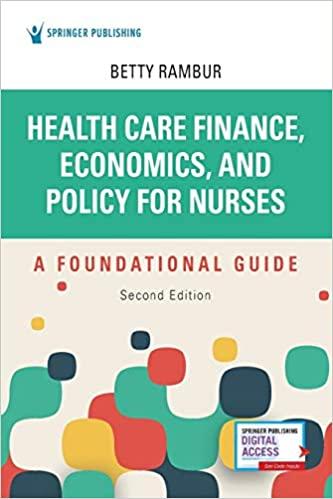Question
Mr. Smith has received a large inheritance. He wants to invest enough of the inheritance today to live off of for the next twenty years.
Mr. Smith has received a large inheritance. He wants to invest enough of the inheritance today to live off of for the next twenty years. He is planning on the following expenditures for the next twenty years:
at the end of each of the first five years (t = 1,2,3,4,5), $50,000 per year
at the end of each of the next ten years (t = 6,7,8,9,10,11,12,13,14,15), $75,000 per year
at the end of each of the following three years (t = 16,17,18) $25,000 per year
at the end of each of years 19 and 20, $85,000 per year.
Also at the end of year 20, Mr. Smith wishes to make a one-time payment of $100,000 to his nephew for graduate school.
A. Based on these planned expenditures, how much must Mr. Smith invest today to be able to cover these costs. Assume that he can invest at a rate of 7% per year, compounded annually.
B. What effect would an increase in interest rates have on his required investment amount? Why?
C. What effect would a decrease in interest rates have on his required investment amount? Why?
Step by Step Solution
There are 3 Steps involved in it
Step: 1

Get Instant Access to Expert-Tailored Solutions
See step-by-step solutions with expert insights and AI powered tools for academic success
Step: 2

Step: 3

Ace Your Homework with AI
Get the answers you need in no time with our AI-driven, step-by-step assistance
Get Started


